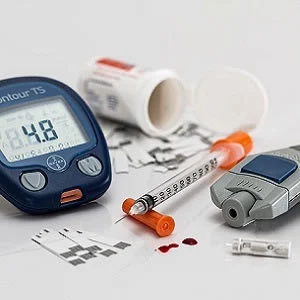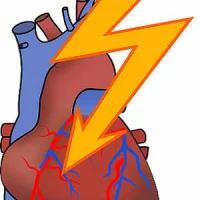Researchers from the Technical University of Munich (TUM) have identified one of the reasons why diabetics have greater risk of suffering a heart attack: Diabetes is associated with the loss of small blood vessels around the heart. This in turn affects the entire cardiac muscle. Their findings are published in Journal of the American College of Cardiology.
See Also: Sex-gender-specific Treatments for Diabetic Patients
The study, led by Dr. Rabea Hinkel and Prof. Christian Kupatt, cardiologists at TUM's Klinikum rechts der Isar, compared blood vessels of patients with and without diabetes undergoing heart transplants. Analysis of samples from diabetics revealed significantly reduced numbers of small blood vessels around the heart.
In the laboratory the team was able to show that elevated blood sugar levels are associated with a loss of cells known as pericytes. "These cells normally form a layer wrapped around the small blood vessels," explains Dr. Hinkel. "We believe that this layer has a stabilising function. When it is damaged, the entire blood vessel becomes unstable and ultimately breaks up."
Animal experiments confirmed the assumption of a steady decrease in capillary density around the heart when diabetes is left untreated. "Diabetes often remains undetected in patients for years or even decades. Over that long period, massive damage can occur," Dr. Hinkel says.
A genetic therapy may help reverse the capillary loss. In the study, researchers applied a genetic therapy to stimulate heart cells to increase production of the molecule thymosin beta 4, a protein whose effects include stimulating the growth of pericytes. In this way, the team at TUM was able to induce the growth of lasting and functional capillary networks.
It will take more time before such kind of therapy can be used in humans. Still, the study was able to show for the first time in a transgenic large animal model, which closely models human type I diabetes mellitus, how diabetes damages the heart, according to Prof. Kupatt. The study offers new perspectives for treating patients. "It also further reinforces our awareness of how important it is to diagnose diabetes early," the professor notes.
Source: Technical University of Munich
References:
Hinkel, Rabea et al.(2017) Diabetes Mellitus–Induced Microvascular Destabilization in the Myocardium. Journal of the American College of Cardiology; 69 (2): 131 DOI: 10.1016/j.jacc.2016.10.058
Latest Articles
diabetes, heart attack, cardiac muscle, pericytes
Researchers from the Technical University of Munich (TUM) have identified one of the reasons why diabetics have greater risk of suffering a heart attack: Diabetes










